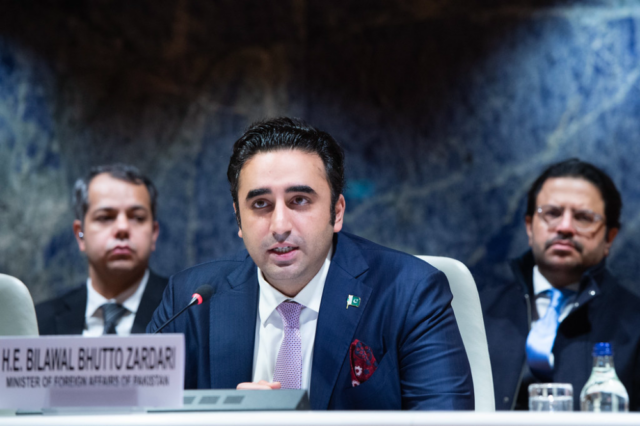Pakistan People’s Party (PPP) chairman Bilawal Bhutto-Zardari said today that the stalemate in government formation is likely to continue, “if someone is not ready to change their stance”. Bilawal has repeatedly said that his party would help form a coalition government but will not join it. The PML-N doesn’t seem too happy with the idea but Bilawal is sticking to his guns.
“If someone else wants to change their stance, there can be progress. If they are not ready to change it, I foresee a stalemate. If I want to give the PML-N a vote, I will have to give it on my terms and not theirs,” Dawn quoted Bilawal as saying. “The faster this (the delay) is resolved, the better will it be for stability and the incoming government,” he added.
On February 18, Bilawal said he had rejected the proposal of having a rotational prime minister. He told a rally in Sindh that the PML-N had offered him a power-sharing formula, according to which Nawaz Sharif’s party would have its candidate as prime minister for three years, after which Bilawal can take over for the next two years. “I said no to this. I said I do not want to be a prime minister like this,” he said. “If I become the prime minister, it would be after the people of Pakistan elect me,” he said.
Bilawal’s remarks came at a time when the members of the Pakistan Muslim League-Nawaz (PML-N) and PPP are holding consultations to reach an agreement over the formation of a future government.
Bilawal-led party is eyeing key constitutional positions, including that of president for his father Asif Ali Zardari.
“To control the fire spreading in the country, we have decided that Zardari will be our candidate for the presidential election. And when he takes up the post, he will put out this fire, and will save the Centre and the provinces,” he said.
To form a government, a party or alliance needs to reach the necessary 169 seats in the 336-member lower house of Parliament. In the recently concluded elections, Independents backed by Pakistan Tehreek-e-Insaf (PTI) have emerged as the largest group by winning more than 90 seats, followed by the PML-N and PPP’s 79 and 54 seats, respectively.
In a career spanning three decades and counting, Ramananda (Ram to his friends) has been the foreign editor of The Telegraph, Outlook Magazine and the New Indian Express. He helped set up rediff.com’s editorial operations in San Jose and New York, helmed sify.com, and was the founder editor of India.com.
His work has featured in national and international publications like the Al Jazeera Centre for Studies, Global Times and Ashahi Shimbun. But his one constant over all these years, he says, has been the attempt to understand rising India’s place in the world.
He can rustle up a mean salad, his oil-less pepper chicken is to die for, and all it takes is some beer and rhythm and blues to rock his soul.
Talk to him about foreign and strategic affairs, media, South Asia, China, and of course India.





